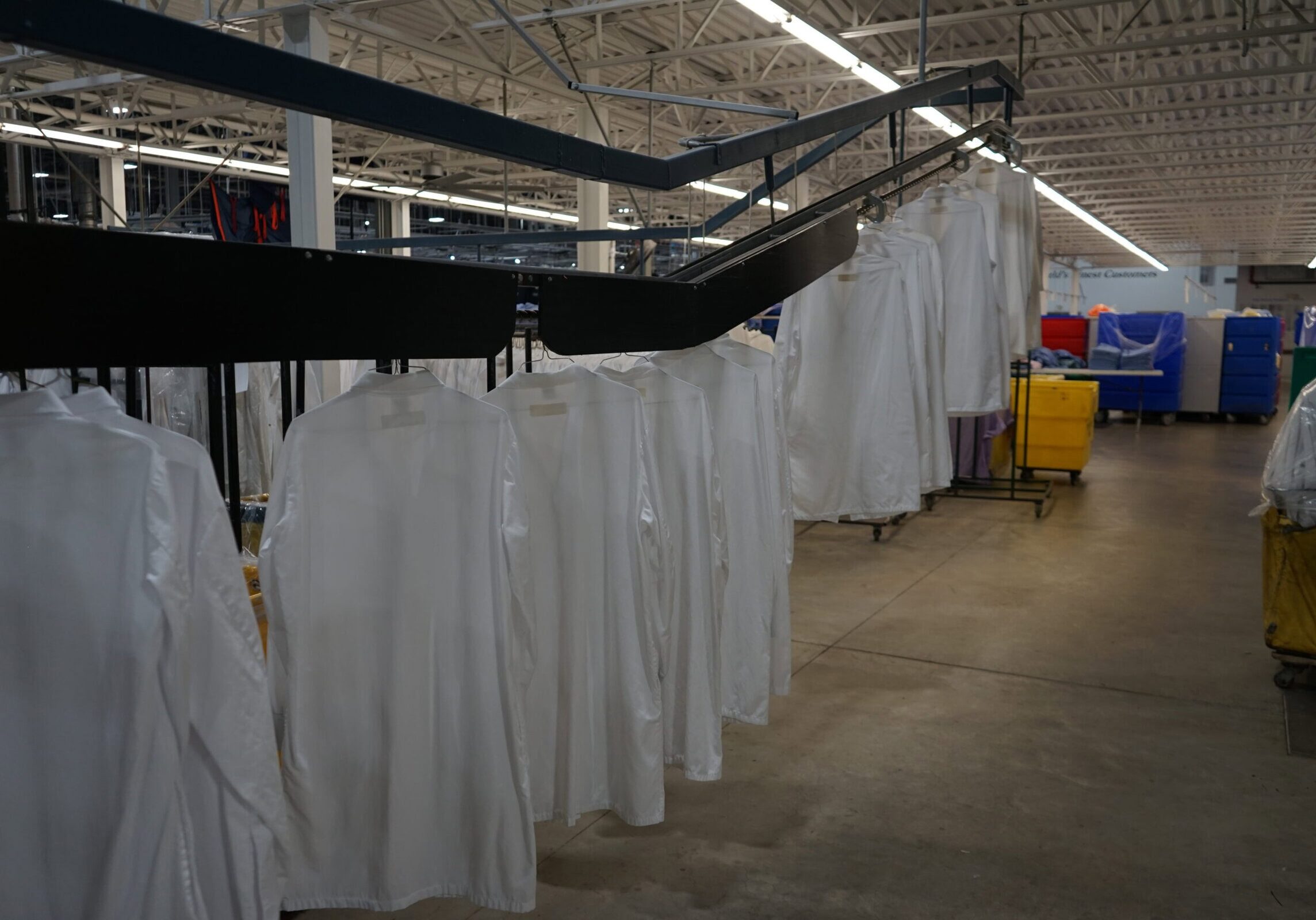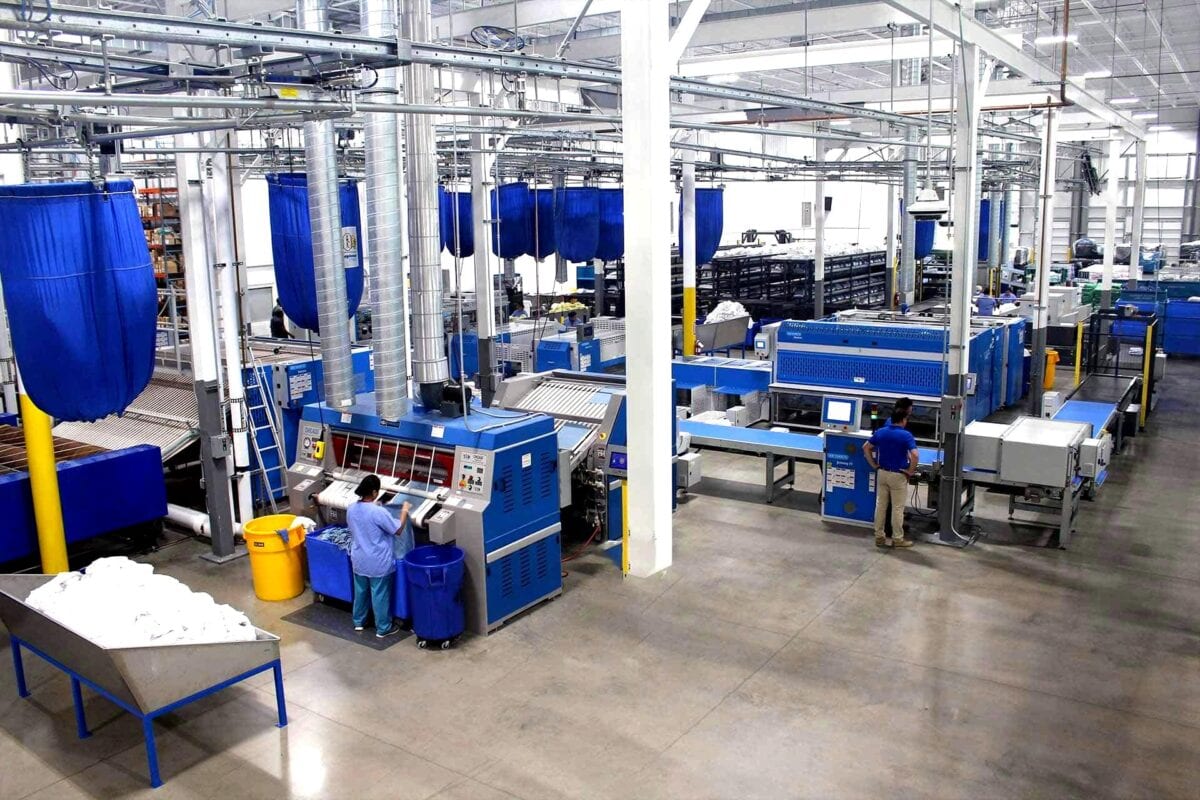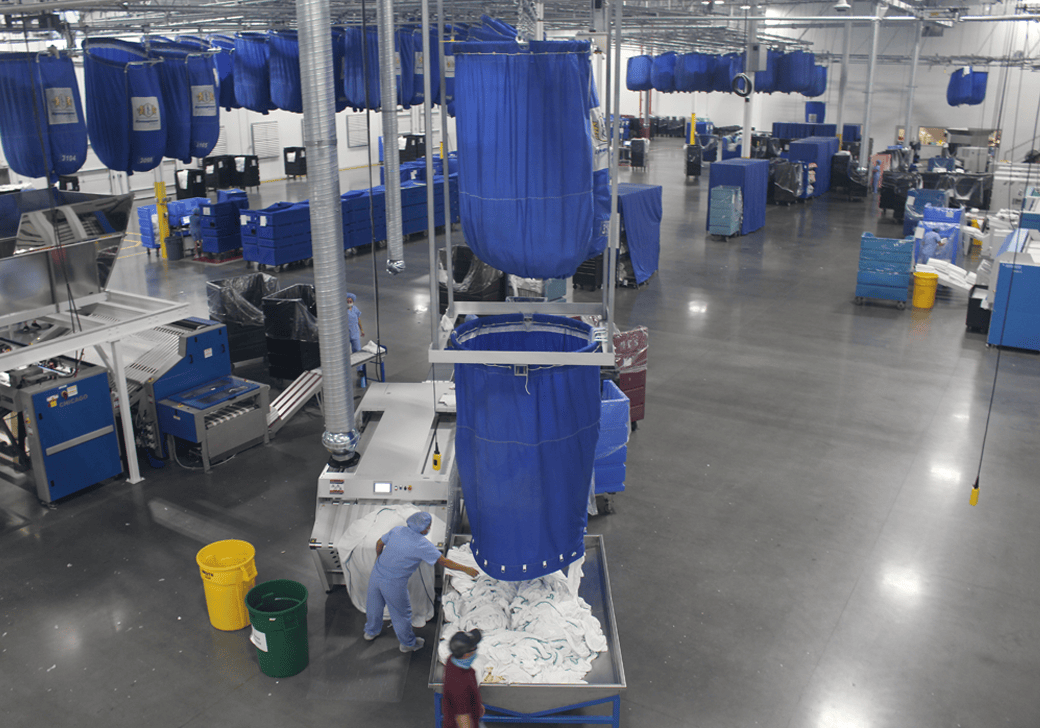Textile Care Services (TCS), a healthcare and hospitality launderer that’s part of Healthcare Linen Services Group (HLSG), recently completed a $10 million upgrade at its Rochester, MN, plant. It’s now seeing a range of benefits from automation, a topic you’ll hear more about in an upcoming plant profile in Textile Services magazine.
Paul Jewison, the general manager who planned the original TCS plant that opened in 1993, said he’s delighted with the savings the plant is generating on utilities and the faster throughput that the new equipment provides. What’s more, by reducing the opportunity for human errors, enhanced automation also is helping to head off rivalries that occasionally arise among co-workers from different departments. Jewison said he’s seen this happen in the past with wash aisle systems that require more “hands on” adjustments.
That’s no longer the case, he said, because the technology means that there’s less employee “tweaking” of production systems that can fuel rivalries between wash-aisle and finishing-side employees. “It was a good opportunity to stomp that out because we did all these upgrades,” he said of past conflicts. “We brought the new technology to the table.” Now, automation has altered the plant’s culture. “That’s one of the biggest pieces, after this renovation is to change the culture of letting the computers do the work,” he said. “Let them make the decisions.”
Of course, HLSG’s TCS plant still has staff on the floor monitoring the process, but the need to adjust the production flow by hand is far less now with the new equipment that includes:
- An upgrade of TCS’ ETECH rail system
- Three new Kannegiesser tunnel washers
- 16 new Kannegiesser dryers,
- A new $1 million roof
Jewison, who’s also vice president of HLSG, St. Charles, IL, said he’s pleased with the progress that’s followed HLSG’s investment in its TCS facility, a 96,000-square-foot (8,918-square meter) plant.
Joseph LaPorta, CEO and president of HLSG, emphasized the importance of providing backing for each of the company’s 21 U.S. plants to ensure superior performance. “At HLSG, we believe that sustained investment across all our facilities is essential – not only to support our growth – but to ensure that we deliver the highest quality and innovation to our customers,” LaPorta said. “By strengthening each of our plants, we reinforce our commitment to operational excellence, workforce development and long-term value creation.”
At HLSG’s TCS plant, overall efficiency is now up 10%-15%, and Jewison notes that he’s pleased with speed and precision of his tunnel washers. “We set our wash cycles down to 85 seconds,” he said. “There’s times when we get 42 transfers per hour.” The plant is processing roughly 650,000 lbs. (294,835 kg.) per week; and could exceed 40 million lbs. (18 million kg.) for the year, he said.
Jewison is also happy because HLSG’s TCS plant is delivering these productivity numbers without running on weekends, which is unusual for a healthcare/hospitality laundry. “The unique thing is we get it done in a shift and a half,” he said. “And we do it five days a week.” This schedule has multiple benefits, such as freeing up time for preventive maintenance, as well as work hours that appeal to prospective job seekers who want weekends off.
Since the TCS plant completed its refurbishing effort a year ago, the plant’s head count has dropped from roughly 225 people before the upgrade to around 200 today. These job cuts have come mainly from attrition. “As people leave, in some cases, you’re just not filling the jobs because you don’t have the demand,” Jewison said. “We still have a few retirements. But a lot of it is just attrition. People come and go, right?”
Now, as it turns out, the plant is looking to hire new staff due to added business, including a new hospital group that recently signed a contract with TCS. “It all depends on what we’re needing,” Jewison said of staffing issues. “We’re kind of in a hiring mode now because we’re ramping up. We’re getting ready for our new hospital business.” Additional work has come from post-COVID-19 closures of on-premise laundries (OPLs) by area hospitals. Demand from TCS’s largest client, Mayo Clinic, also is increasing, he said.
While organic growth naturally stimulates demand for production labor, automation is changing the way companies like HLSG’s TCS plant do business. Having computers manage the flow of goods through wash aisle and finishing department frees up staff and managers to focus on quality and training. The staff need less time to remove wash aisle bottlenecks that cause shortages of goods that can idle one or more of the plant’s six ironer lines. TCS has entered a new era, Jewison says. Watch for follow-up coverage in July’s Textile Services.
Publish Date
May 16, 2025
Categories
Sign Up For Our Newsletter
Receive the latest updates on the linen, uniform and facility services industry from TRSA delivered straight to your inbox.








